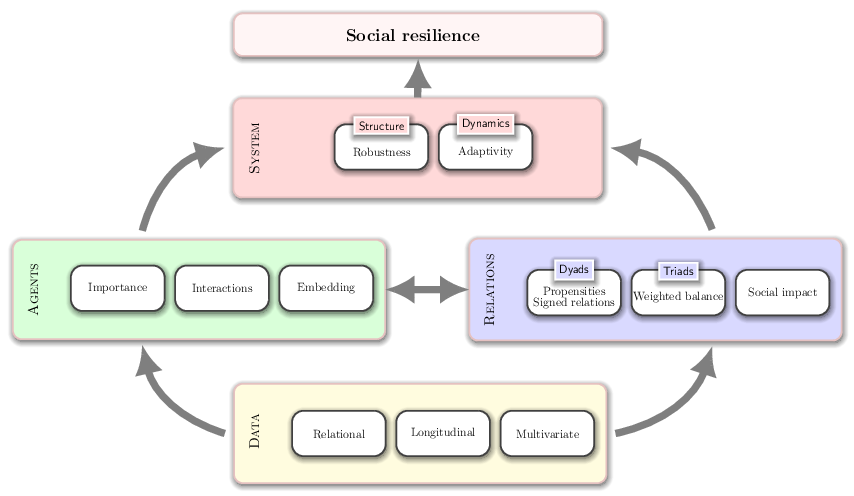Abstract
Resilience denotes the capacity of a system to withstand shocks and its ability to recover from them. We develop a framework to quantify the resilience of highly volatile, non-equilibrium social organizations, such as collectives or collaborating teams. It consists of four steps: (i) emphdelimitation, i.e., narrowing down the target systems, (ii) emphconceptualization, i.e., identifying how to approach social organizations, (iii) formal emphrepresentation using a combination of agent-based and network models, (iv) emphoperationalization, i.e. specifying measures and demonstrating how they enter the calculation of resilience. Our framework quantifies two dimensions of resilience, the emphrobustness of social organizations and their emphadaptivity, and combines them in a novel resilience measure. It allows monitoring resilience instantaneously using longitudinal data instead of an ex-post evaluation.
